Latest Sports News
The ATP have announced a partnership renewal of their agreement with Swiss watchmaker Rolex, who will continue on as the Official Timekeeper and Gold Partner of the ATP. The long-standing…

Welcome to our SportsKharbi website, a place where you will find all news and the latest information in the world of sports. In this guide, we’ll explore the top rated sports betting sites catering to Indian players. Whether you’re an experienced bettor or just a beginner, we’ve got you covered with everything you need to know about sports betting sites in India.
From registering bonuses to free betting sites, legal considerations to live betting options, we’ll cover it all.
Discover the most trusted and reputable bookies, learn how to start betting online, and find out how online betting works.
Below is a list with the top online sports betting sites in India 2025. Check these offers and find the best options for you.

Batery
Welcome Bonus
500% up to 150,000 INR

4RaBet
Welcome Bonus
700% up to 90,000 INR

Stake
Welcome Bonus
200% up to 120,000 INR

Dafabet
Welcome Bonus
160% up to 16,000 INR

Parimatch
Welcome Bonus
150% up to 50,000 INR

Paripesa
Welcome Bonus
100% up to 30,000 INR

Melbet
Welcome Bonus
150% up to 40,000 INR

Betandyou
Welcome Bonus
100% up to 11,254.99 INR

Tez888
Welcome Bonus
500% up to 75,000 INR

BC.Game
Welcome Bonus
470% up to 139,000 INR
Choosing a reliable bookmaker is essential for safe and enjoyable betting. To make it easier, we’ve compared the most popular betting sites available in India. The table below highlights their main features such as apps, deposits, withdrawals, supported sports, and more – so you can quickly find the platform that suits your style.
It is also not only about deposits and withdrawals – bonuses and loyalty programs can make a big difference in the long run. Below you’ll find a comparison of the most popular betting sites in India, covering welcome offers, wagering requirements, maximum bonus amounts, and VIP/Loyalty programs.
Yes, online betting is legal in India, but the laws vary from state to state. Some states like Goa, Daman, and Sikkim have legalized sports betting and casinos, while others haven’t made a clear stance yet. Although there might not be specific laws addressing online bookmakers and their betting platforms, many Indians enjoy wagering on offshore sports betting sites licensed in countries like Curacao, Malta, and the UK.
In simple terms, Indian users won’t face legal trouble for betting online because there are no explicit federal laws banning it. However, it’s essential to choose trustworthy sports betting sites for a safe and fair betting experience.
For better clarity on gambling laws in India, you can refer to the All India Gaming Federation (AIGF), which monitors and advocates responsible gaming practices in the country.
Look for trusted sports betting sites regulated by reputable global bodies like the Malta Gaming Authority or the UK Gambling Commission to ensure your safety and fair play. Additionally, the Curacao eGaming Authority provides licensing information for many offshore bookmakers operating legally in India.
Also, make sure that the bookmaker doesn’t have a physical office in India, as this can affect its legal standing under The Public Gambling Act of 1867, which primarily governs gambling regulations in the country.

Understanding the legality of online sports betting sites in India requires a closer look at the country’s gambling laws. These laws define what is allowed and what is considered illegal in terms of gambling activities and sportsbooks.
Currently, there are no nationwide laws regulating betting and gambling in India. Instead, each state has the right to determine its own position on legalizing and regulating such activities. While some states strictly adhere to the principles set forth in the Public Gambling Act of 1867, others have amended their regulations to accommodate modern gambling practices. A detailed overview of state-specific gambling laws can be found on the National Law University Delhi – Centre for Gaming Laws, which provides insights into evolving gaming regulations in India.
The Public Gambling Act of 1867 primarily deals with gambling in physical establishments or public places, without explicitly mentioning online gambling. This legal gap allows international online sports betting sites to operate in India, although with some uncertainty. For further updates on Indian gambling laws, users can check the Press Information Bureau of India, which frequently publishes government statements and legal changes related to gaming and betting.
To ensure a safe and legal betting experience, we recommend using only licensed and regulated Indian online sports betting sites, which offer a secure platform for betting and gambling from the comfort of your own home. Resources like the Indian Gaming Association provide further insights into responsible gambling practices and legal updates in the region.
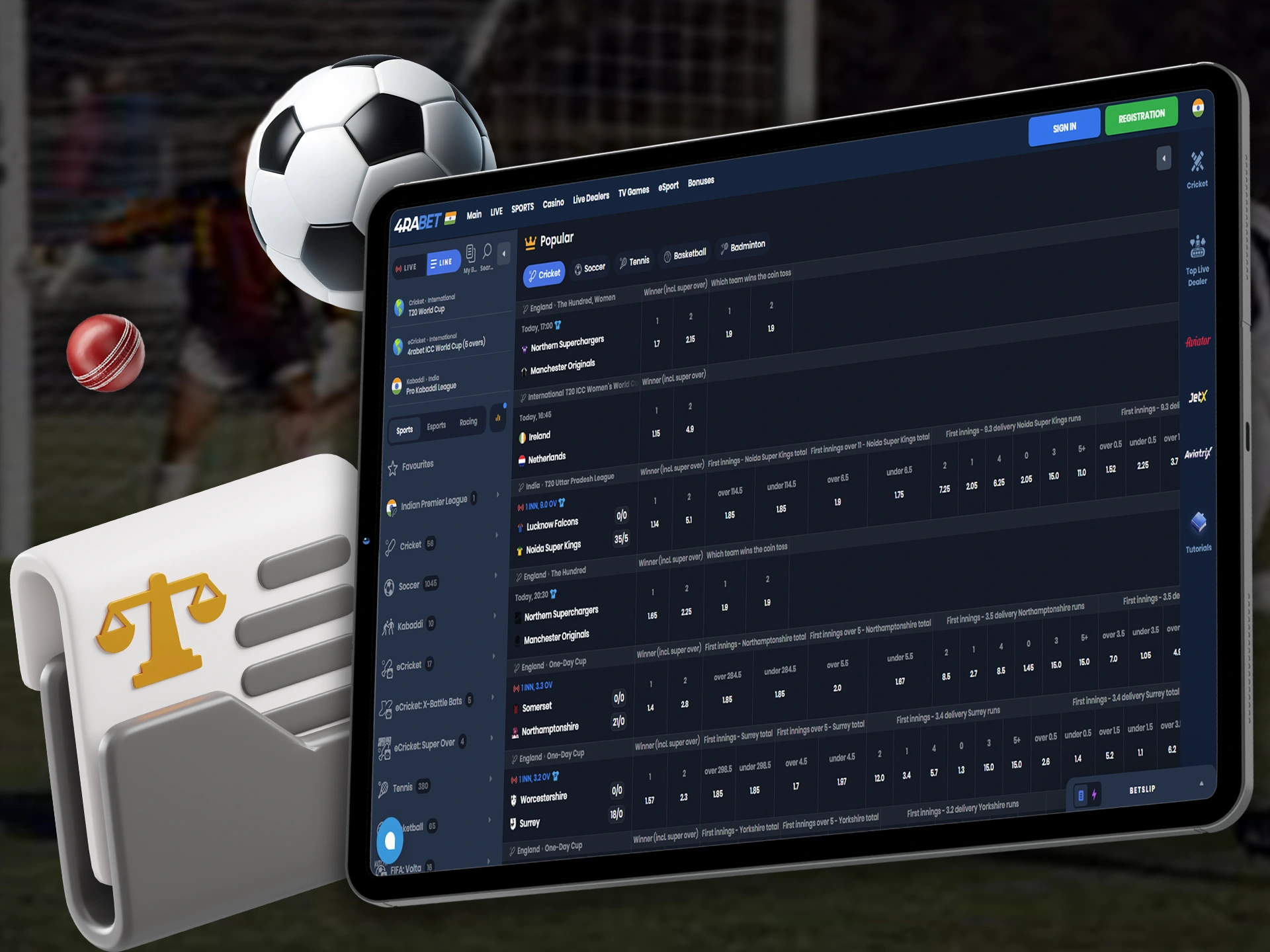
If you’re looking for the top rated online sports betting sites in India, then you’re in the right spot. Here you will know how we rate betting sports sites
and which criteria we consider when evaluating an online bookmaker.
Of course, the best sports betting sites vary among players, as some prioritize best odds, while others look for the best cricket betting apps, bonuses or availability of popular casino games.
In our evaluation of sports betting sites, we consider a wide range of factors that contribute to a reliable, secure, and user-friendly betting environment. The presence and quality of these key criteria are essential in determining which platforms deserve a spot among the best. Below are the most important aspects we assess when rating and ranking sports betting sites:
A trustworthy sports betting site must prioritize the safety of user data. We evaluate:
Only sites with strong, transparent security practices qualify for our top recommendations.
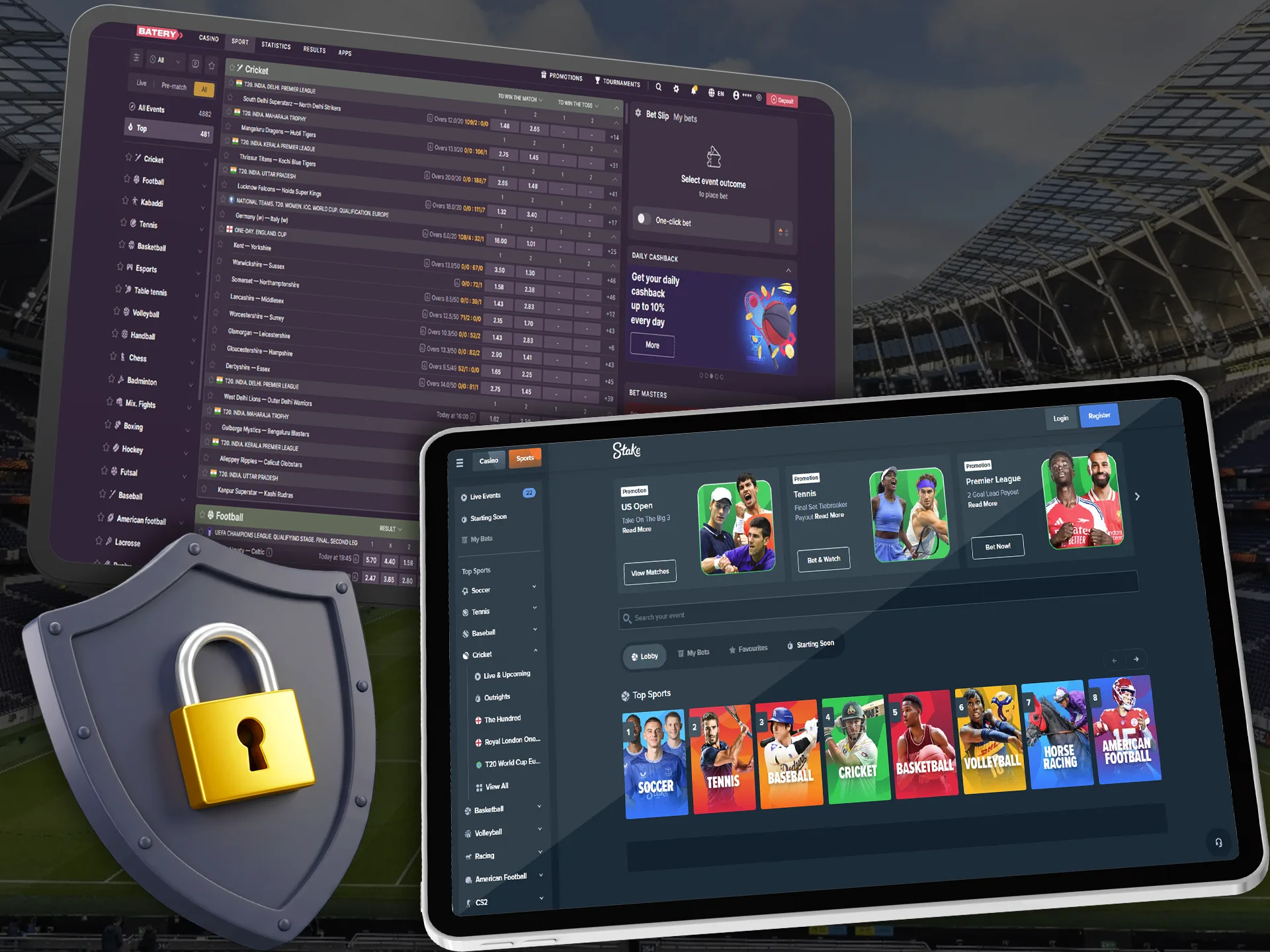
Easy deposits and fast withdrawals are essential for a smooth betting experience. We review:
Top-ranked sites offer flexible, secure, and user-friendly payment systems tailored to local needs.
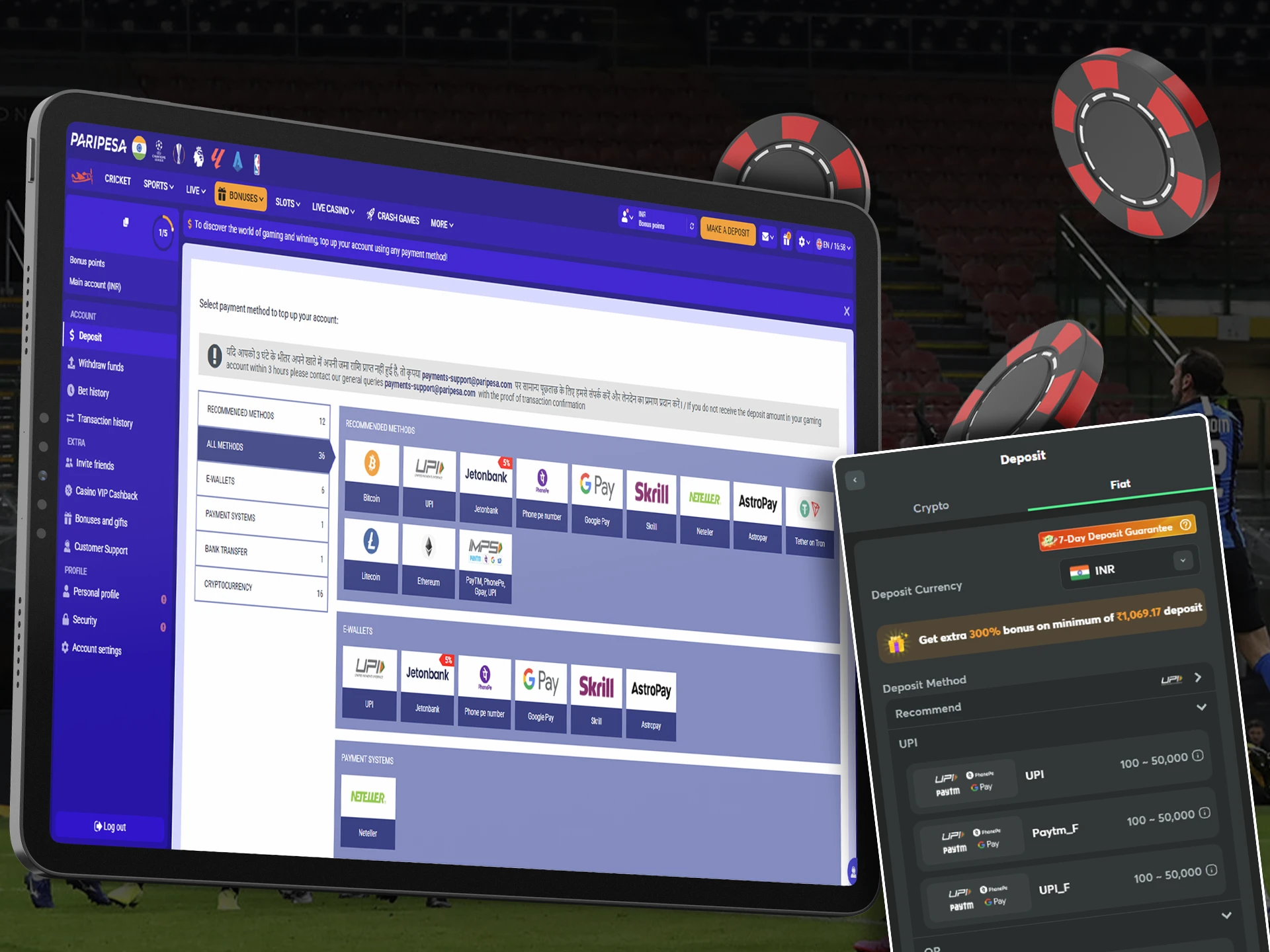
Live betting adds excitement and depth to the sports betting experience. We assess:
The best sites combine live betting with streaming features to support informed, on-the-spot decisions.
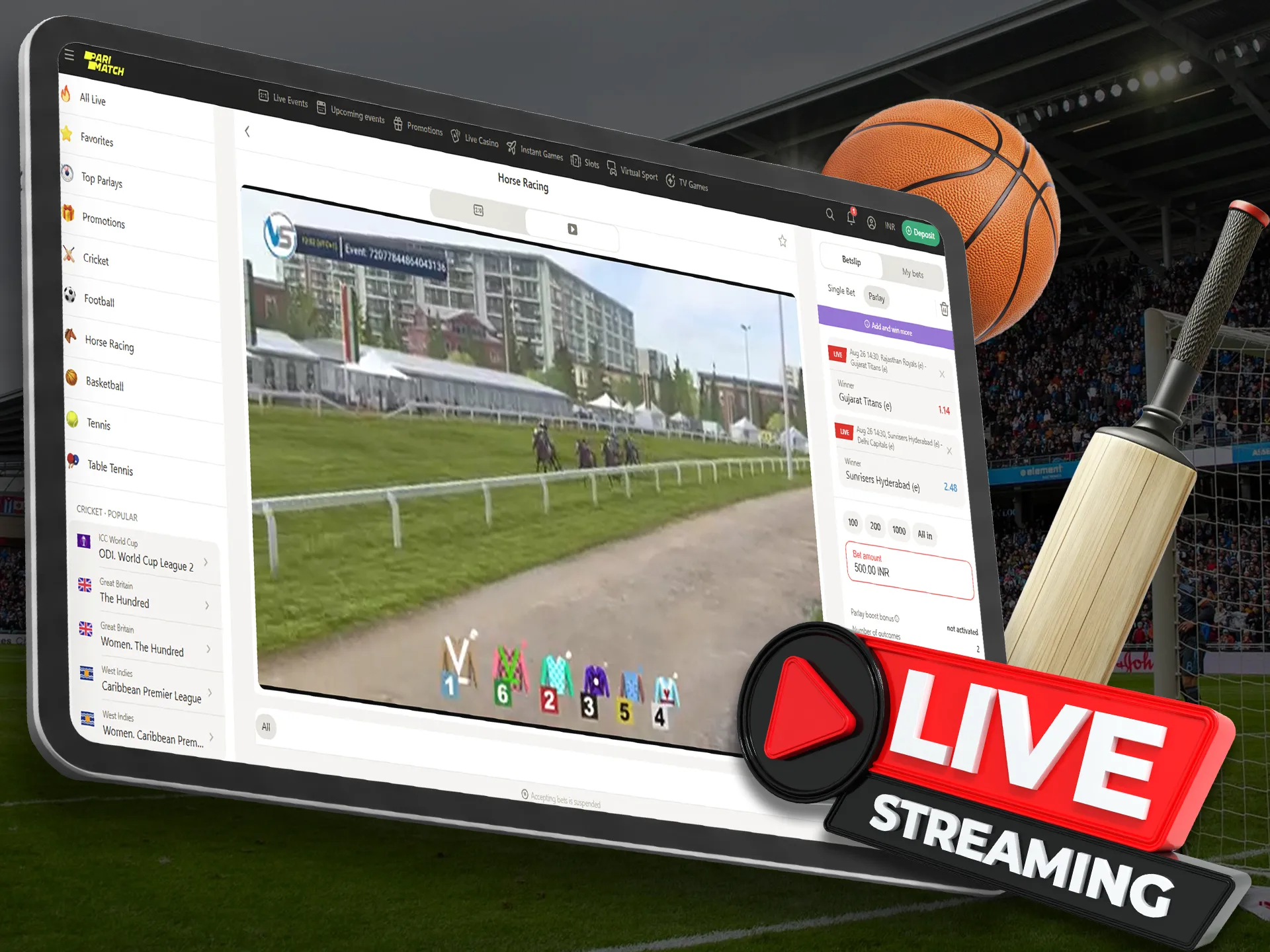
With most users betting on the go, a smooth mobile experience is essential. We evaluate:
Only platforms offering a stable, user-friendly mobile interface are recommended for serious bettors.
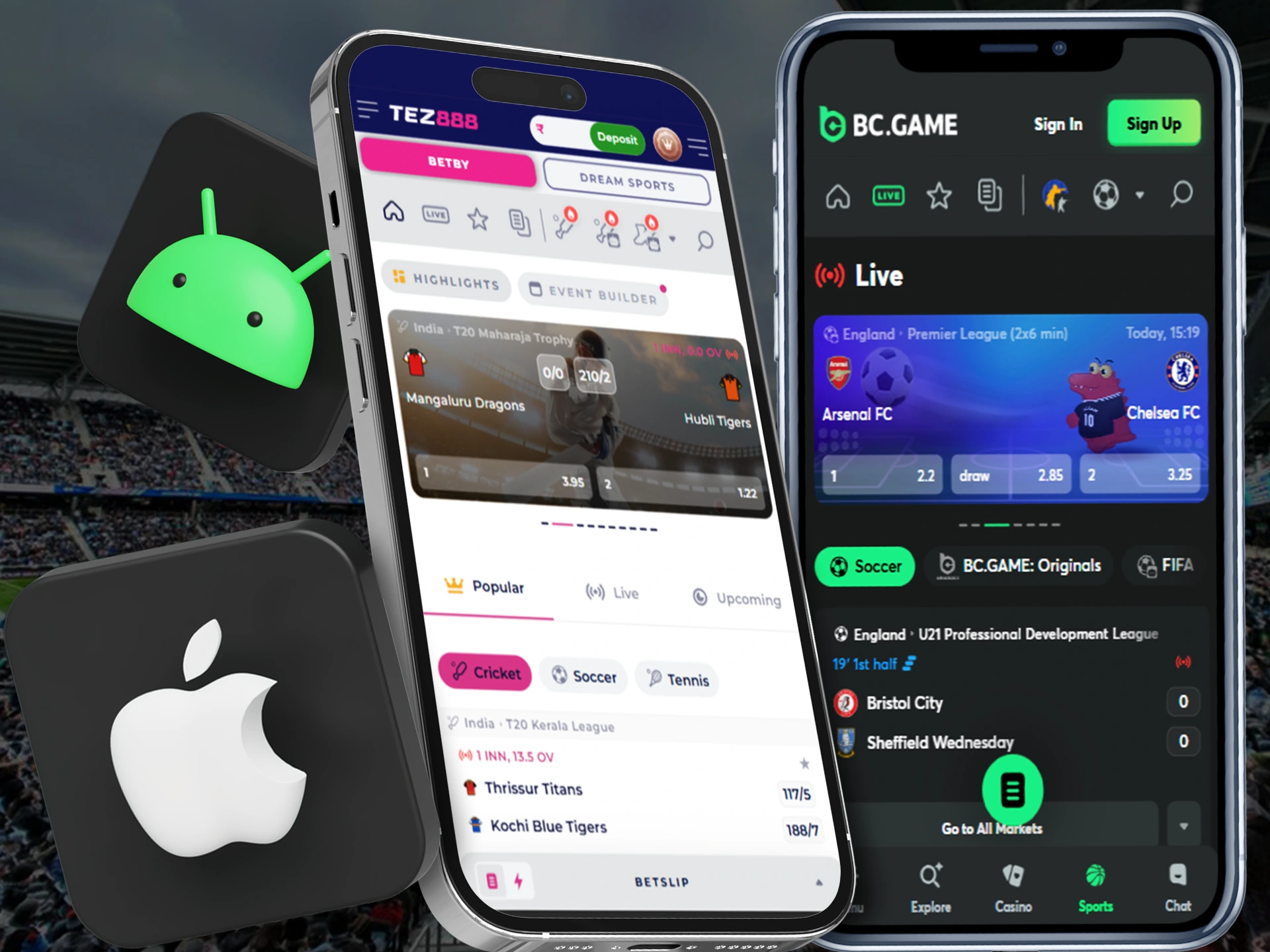
Better odds mean better value for bettors. We analyze:
Top sports betting sites consistently offer fair, competitive odds that maximize user returns.
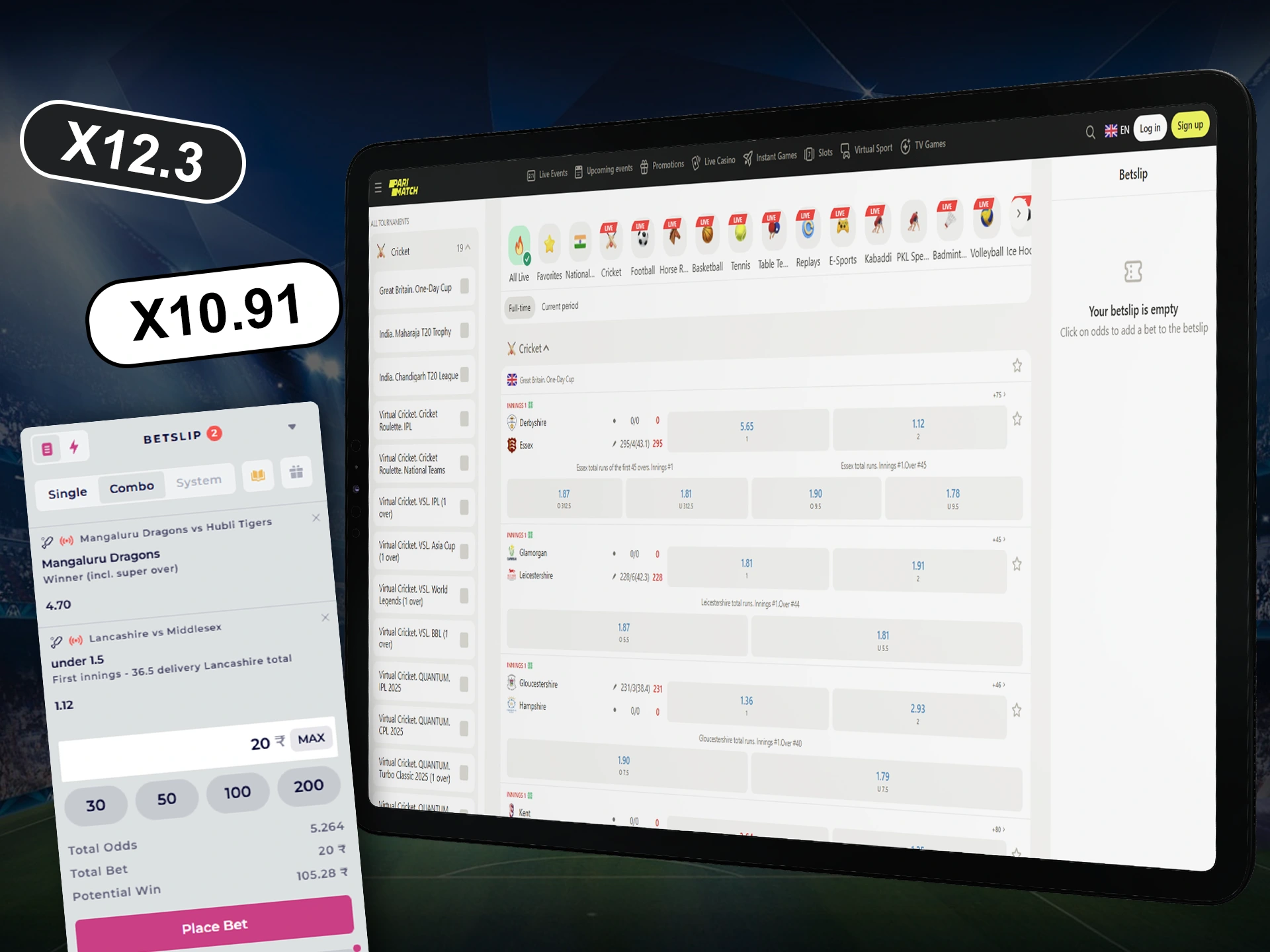
Promotions play a key role in attracting and retaining sports bettors. We evaluate:
We favor platforms that provide regular, rewarding, and user-friendly promotions for all types of bettors.

Online sports betting has become a widespread form of entertainment across the Internet worldwide. Initially, there were no strict regulations governing sports betting, but as it moved from traditional offline establishments to online platforms, governments began setting rules to control this growing industry. A detailed history of the regulation of online betting can be found in the International Association of Gaming Regulators (IAGR), which monitors global gambling laws and standards.
The appeal of online sports betting is clear. In the past, making a bet on a game meant a trip to a physical betting location, often far from home and consuming time. Now, it’s as easy to do with just a few clicks on a computer on special online betting sites for sports or via smartphone.
So, what exactly is online sports betting? It’s simply a more convenient and efficient version of traditional betting, brought into the digital realm. For an in-depth explanation of sports betting markets and odds, you can check resources from the European Gaming and Betting Association (EGBA), which promotes fair gaming standards.
When it comes to cricket, online betting offers fans the opportunity to bet real money on various aspects of cricket matches on various sports betting sites in India. Whether it’s predicting the game’s outcome, the total score, or individual player performances, there’s plenty of outcomes to bet on. However, it’s important to approach betting with responsibility, ensuring that you’re only risking what you can afford to lose. Remember that betting should enhance your enjoyment of the game, not detract from it.
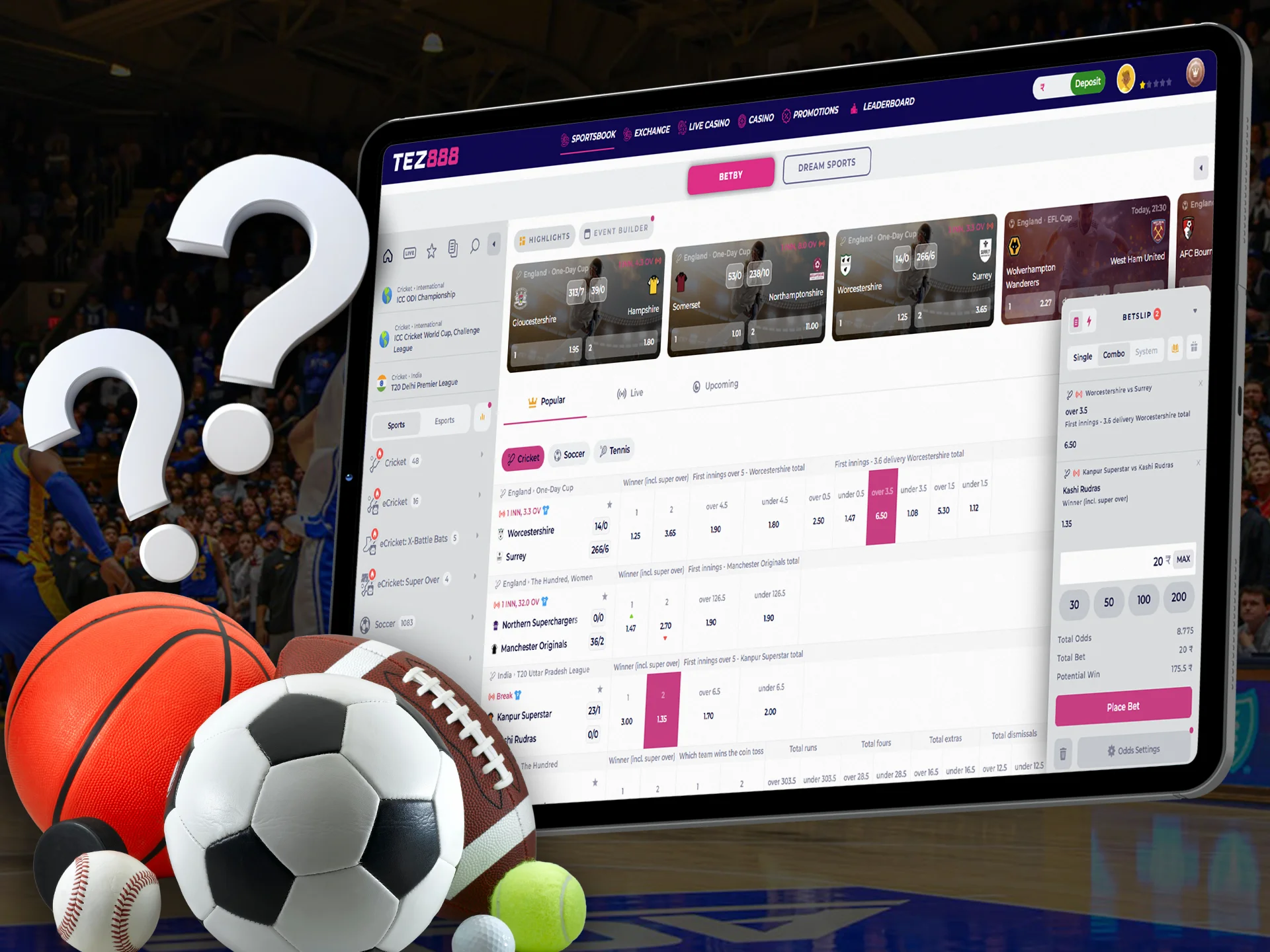
On the best sports betting sites in India bettors will find a wide range of sports disciplines and events to bet on in both LIVE and LINE modes. Indian bettors will find such sports as basketball, table tennis, baseball, golf, horse racing, boxing, MMA, and many others.
The most popular sports on Indian sports betting sites are described below.
Cricket is the most popular sport in India. With its massive following and passionate fan base, cricket holds a special place in the hearts of millions of Indians. The popularity of cricket betting in India is unprecedented, with fans eagerly wagering on their favorite teams and players. For those looking to get started, the best cricket betting sites provide a wide range of markets, competitive odds, and secure platforms tailored for Indian users.
Some of the most significant cricket events for online betting at top cricket betting sites in India include:
For cricket fans who prefer betting on the go, the best cricket betting apps offer seamless mobile betting experiences, allowing users to place wagers anytime, anywhere. Additionally, with the ICC Champions Trophy 2025 on the horizon, bettors can explore the top betting sites for the tournament to secure the best odds and offers for this prestigious event.
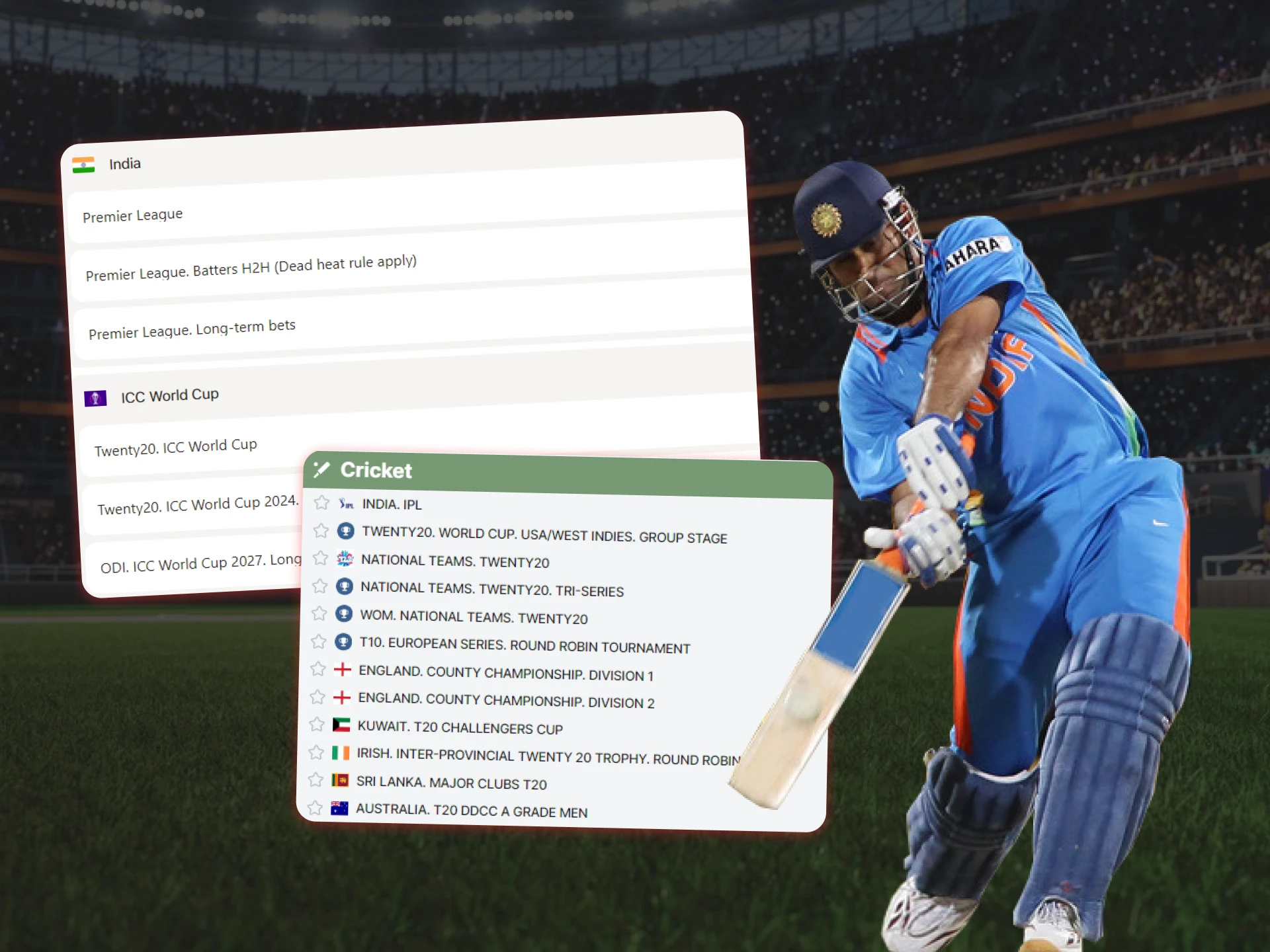
Football in India is steadily gaining popularity due to the success of the Indian Super League (ISL) and the global appeal of European football leagues such as the English Premier League (EPL), La Liga, and Serie A. With the rise of sports betting platforms, football betting has become a favorite pastime for Indian fans. Those looking to get started can explore the best football betting sites that offer competitive odds, various betting markets, and exclusive promotions for football enthusiasts.
Some of the most significant football events for online betting at top football betting sites in India include:
For football fans who prefer betting on the go, the best football betting apps provide a seamless and user-friendly mobile betting experience, allowing users to place wagers anytime, anywhere.

Kabaddi, a traditional Indian sport, has regained popularity in recent years thanks to the Pro Kabaddi League (PKL). The fast-paced action and strategic gameplay of kabaddi has captivated spectators across the country, making it a popular choice for online betting in India.
Some of the most significant kabaddi events to find at online betting sites sports in India include:
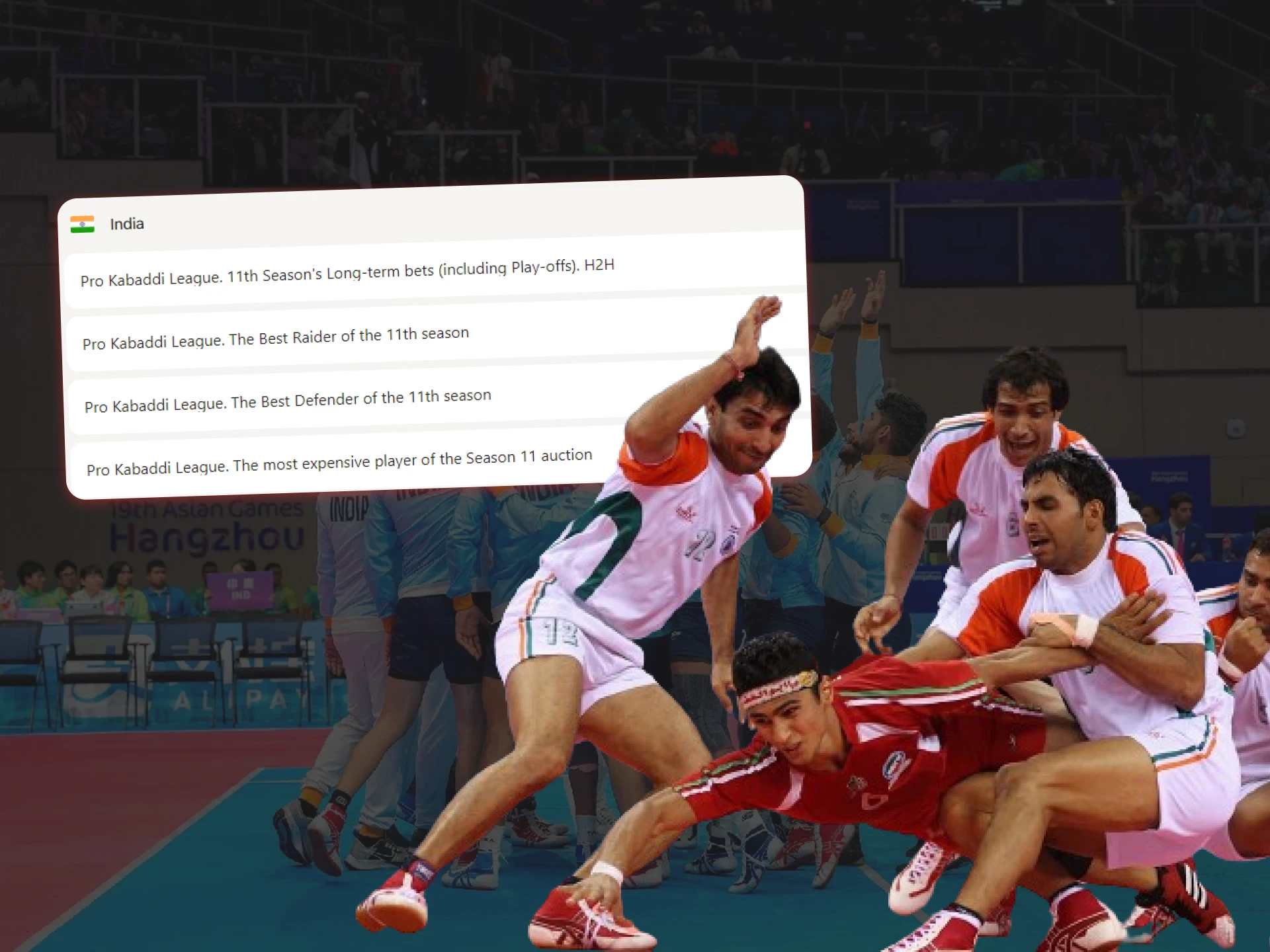
Tennis is very popular in India. The excitement of Grand Slam tournaments and ATP/WTA Tour events makes tennis a favorite choice for online betting in India.
Some of the most significant tennis events for online tennis betting at top sports betting sites in India include:

Formula 1 racing may not have the same level of popularity as cricket or football in India, but it still has a dedicated fan base. With the emergence of talented Indian drivers, F1 has garnered a loyal following and became an exciting option for online betting.
Some of the most significant F1 events for online betting at best online sports betting sites in India include:
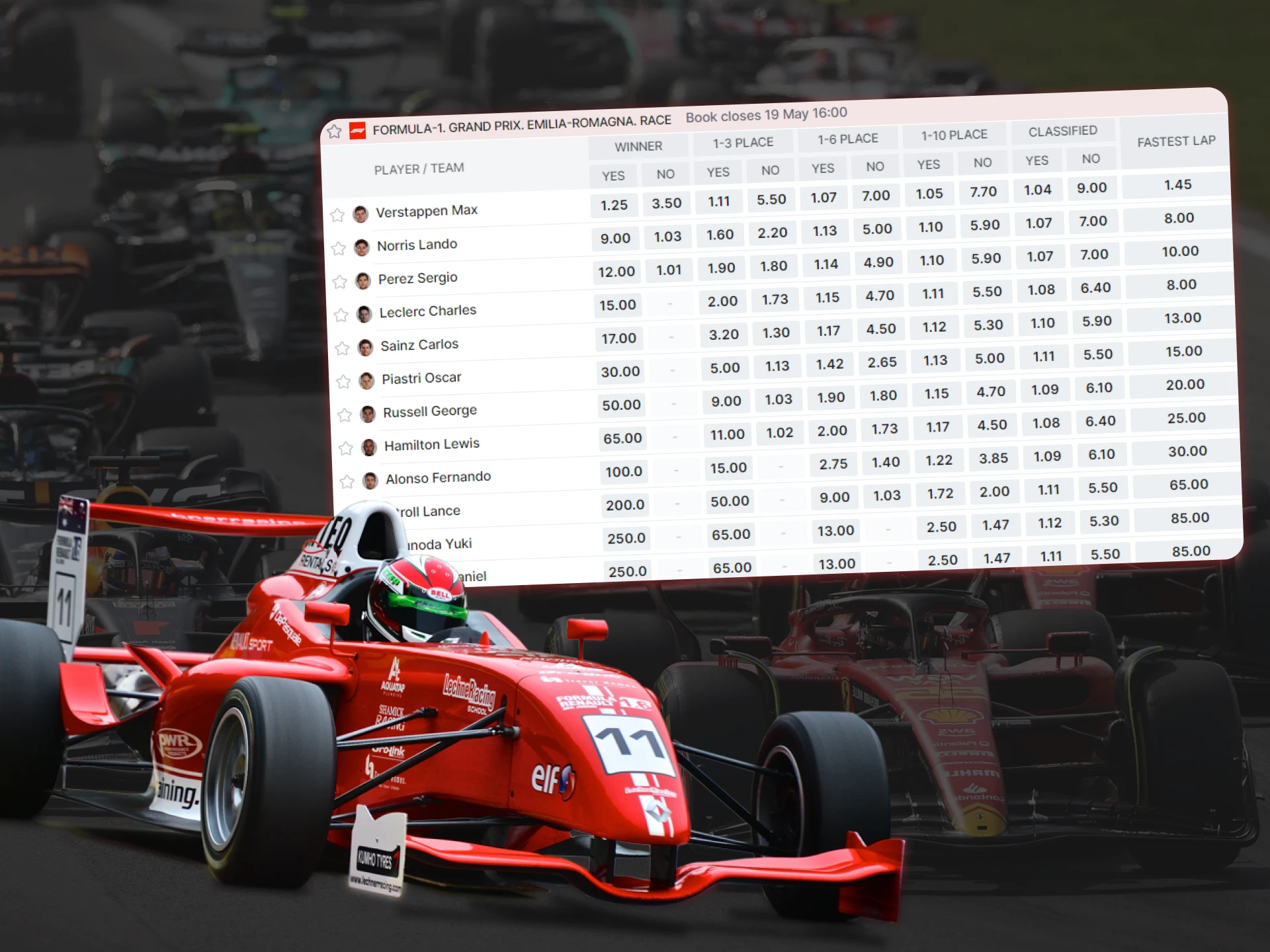
NBA betting allows enthusiasts to bet on games from one of the most popular basketball leagues in the world. Bettors can place bets on various outcomes, including who will win a game, point spreads, player performances, and many others. Among the most popular events are:
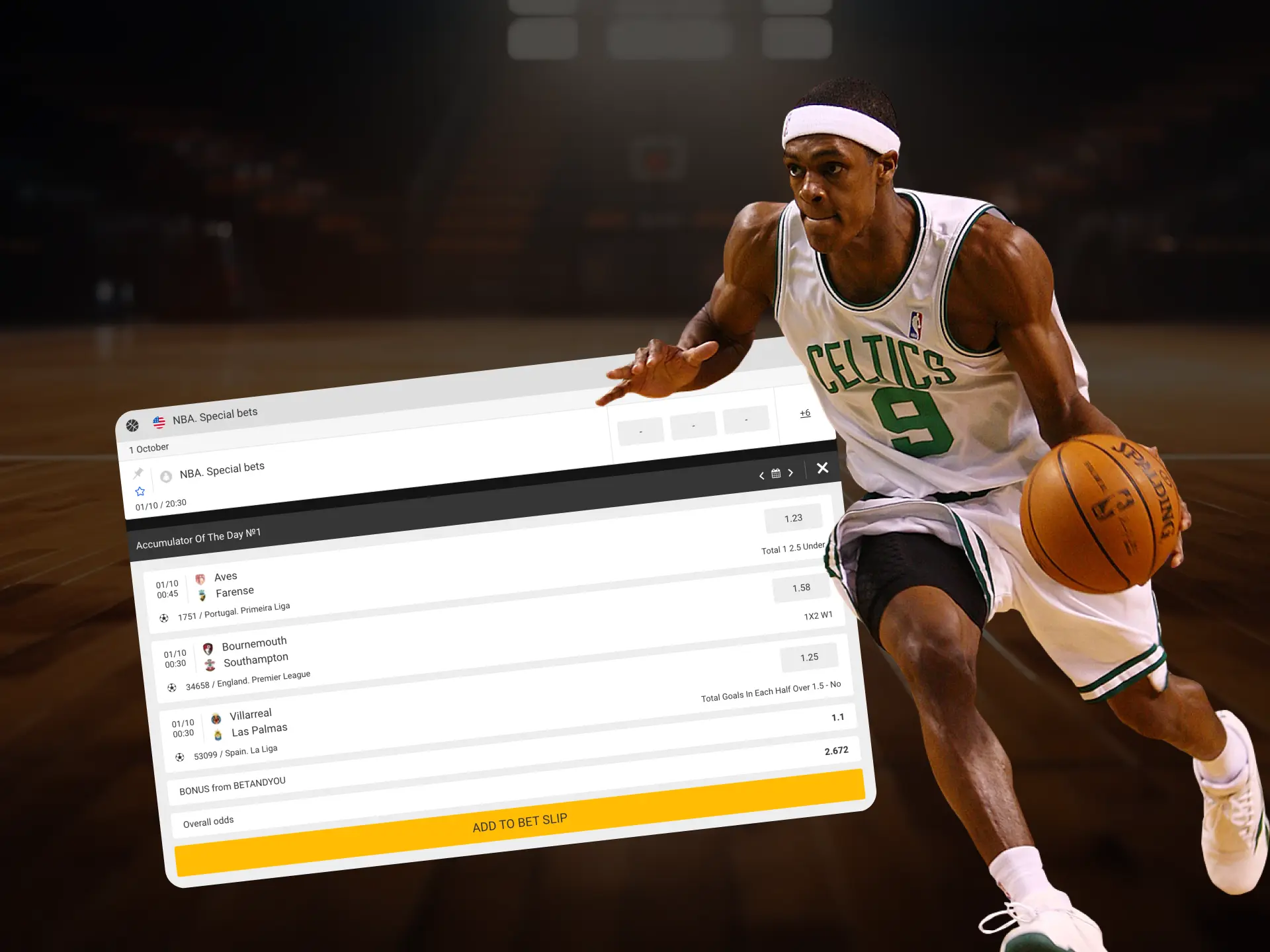
Esports betting involves betting on competitive video gaming events. Players can bet on outcomes such as match winners, tournament champions, and in-game objectives. Popular options include:
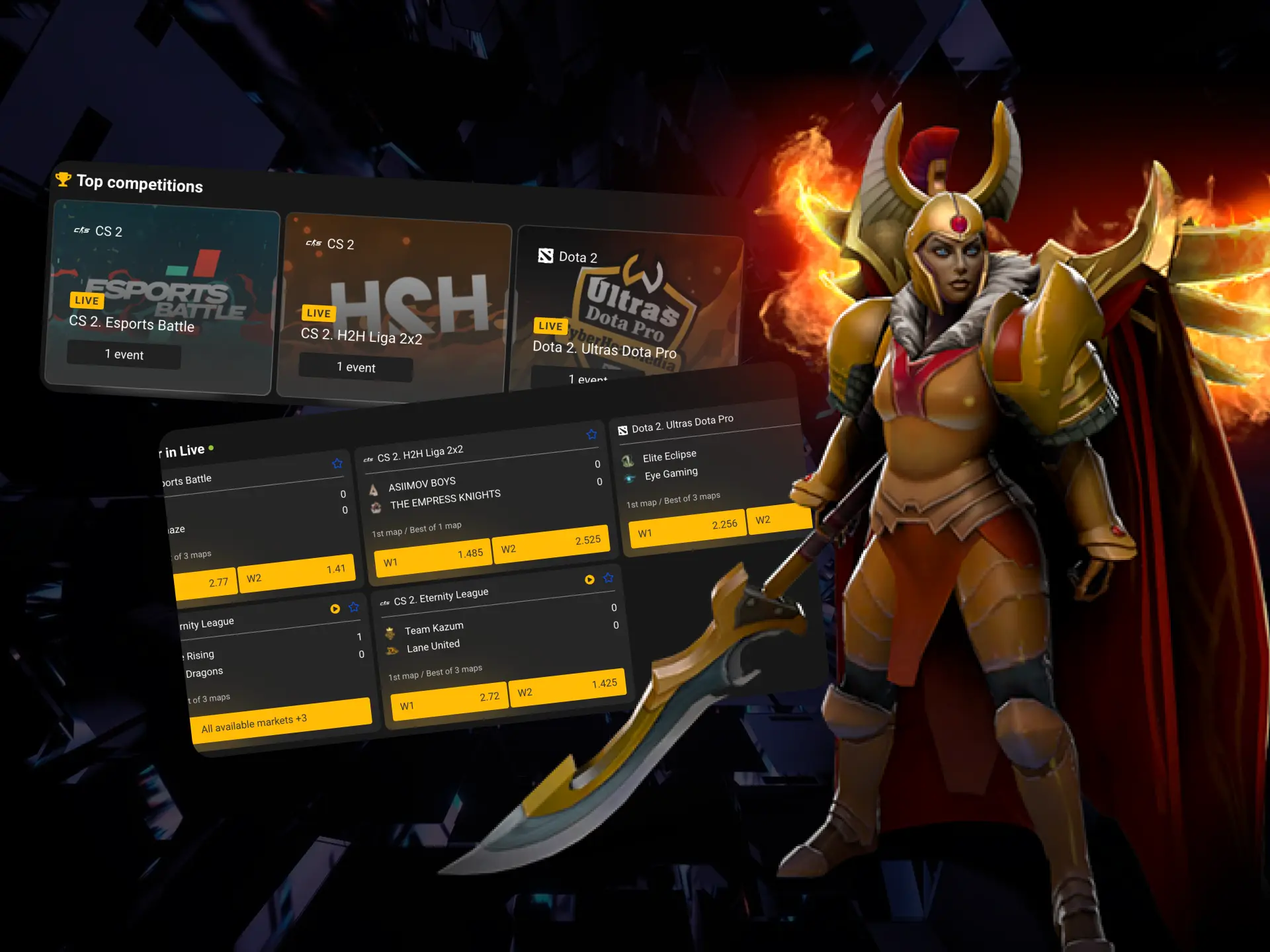
Indian bettors have access to a wide range of sports, which offer diverse betting opportunities and cater to varied interests. Among the popular options are:
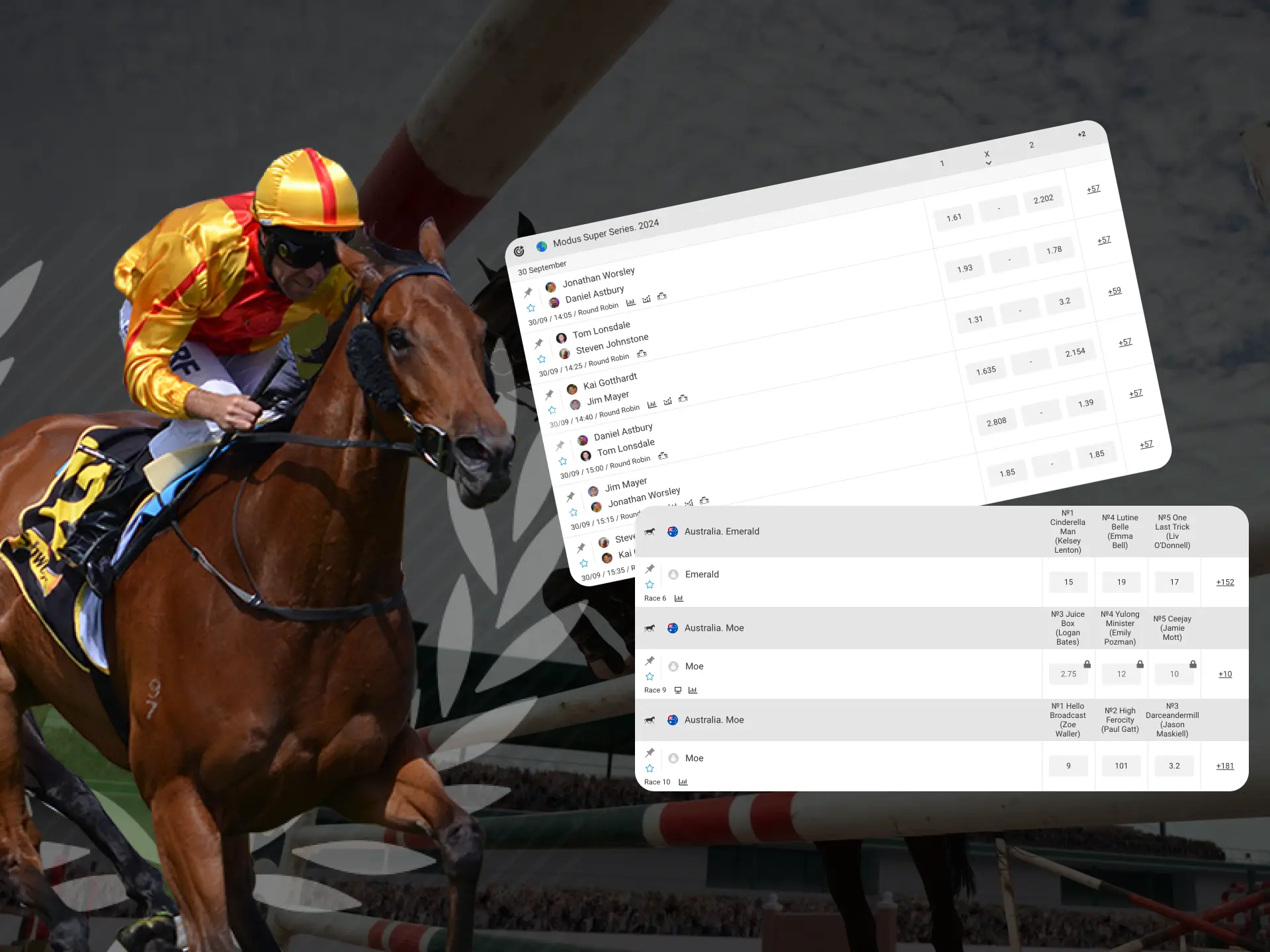
There are essential rules for legal online sports betting sites in India that all users should adhere to. Violating these rules can result in the blocking of user accounts. It’s advised to familiarize yourself with these requirements before signing up:
By following these rules, you can ensure a smooth online sports betting experience without encountering any unexpected issues.
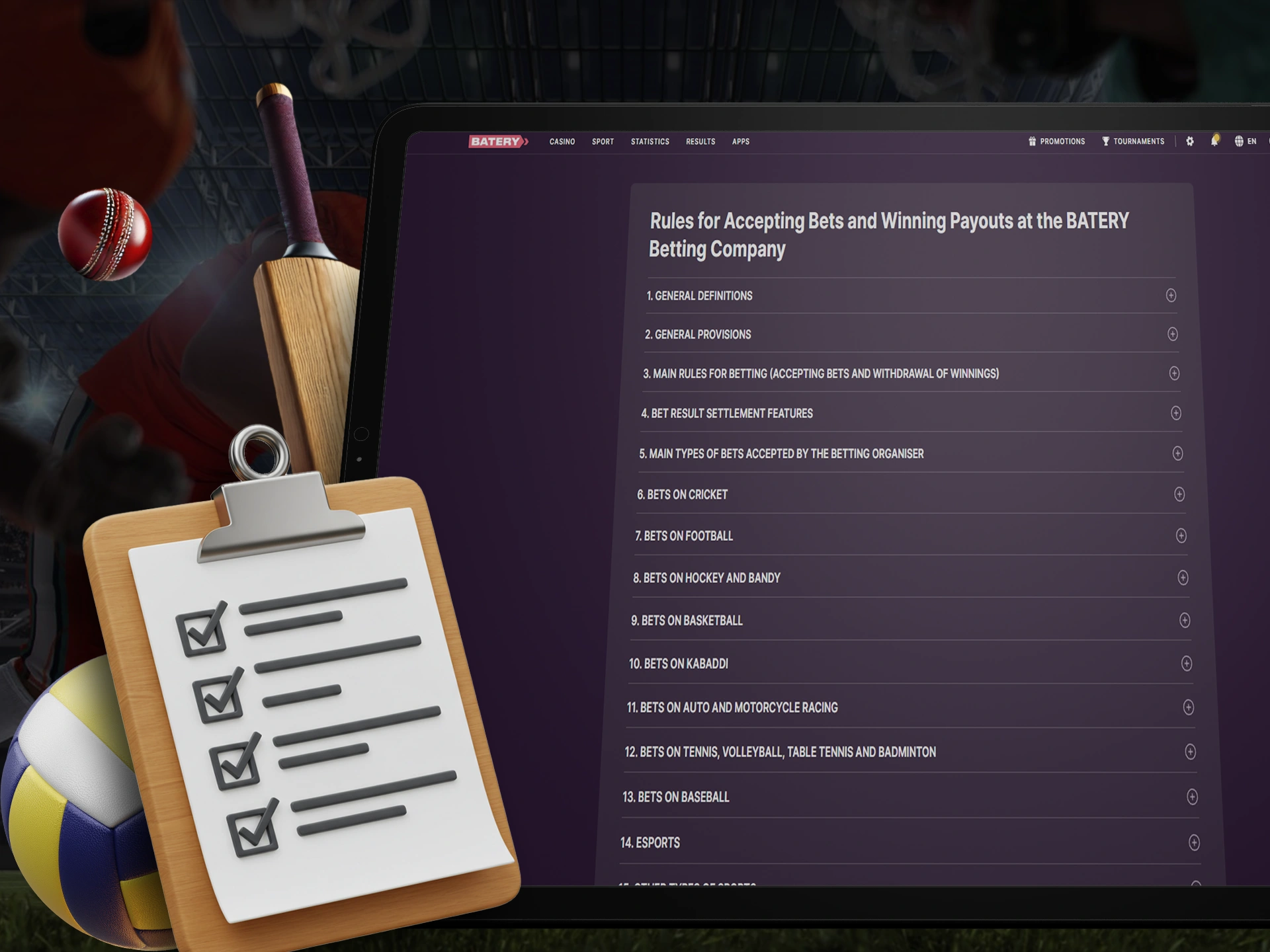
Below you can find the step-by-step instructions on how to use sports betting sites.
Step 1
To begin placing sports bets online, start by selecting a reputable and trustworthy betting site. Research various sports betting sites indiana, compare their features, and look for sites that are licensed and regulated to ensure a safe betting experience.
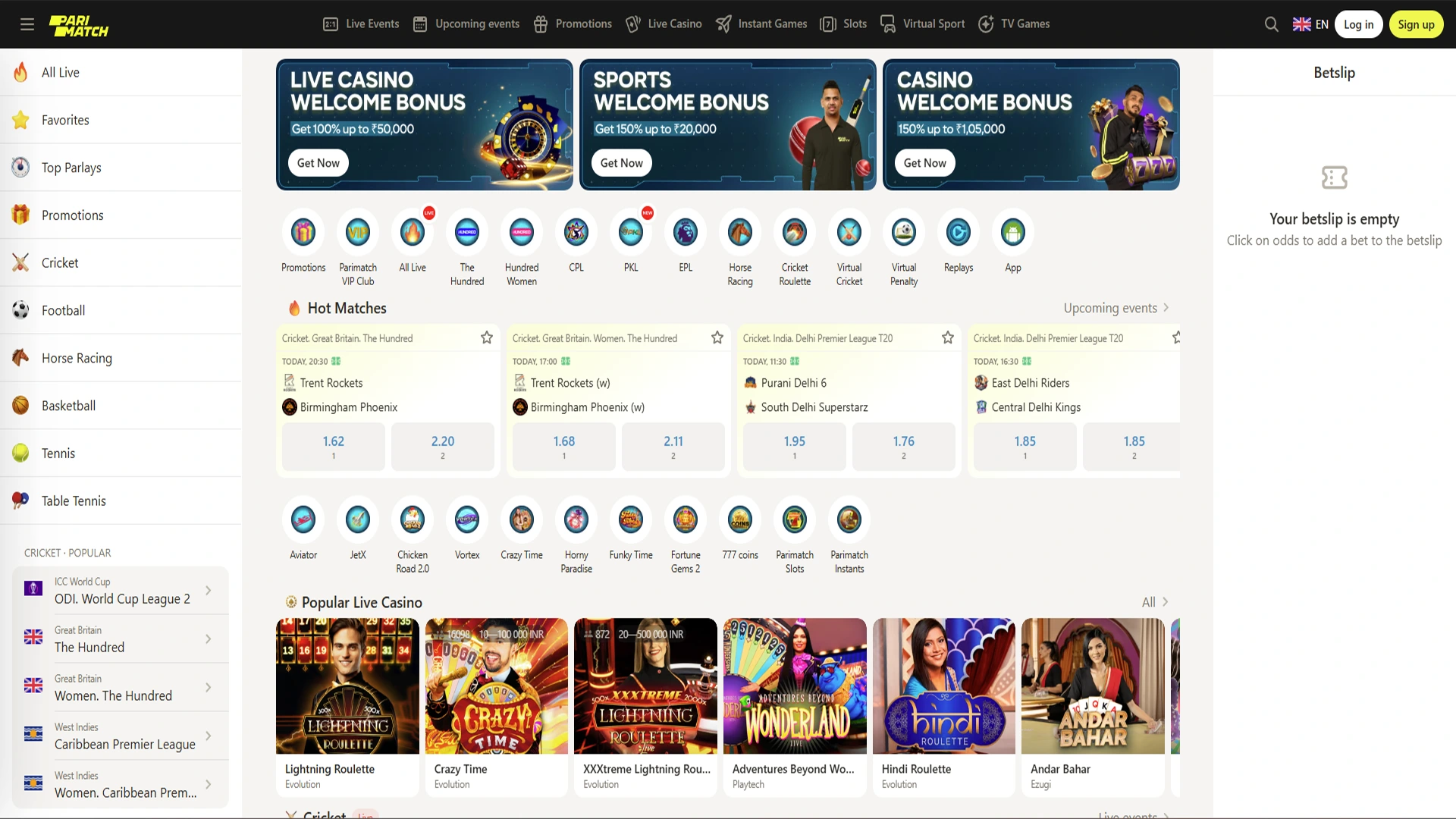
Step 2
Once you’ve chosen a betting site, sign up for an account. Open the website’s registration page and fill in the required information, and agree with the terms and conditions. Some best sports betting sites India may also require identity verification documents for security purposes.

Step 3
After passing through the registration process, fund your betting account. Navigate to the site’s banking or cashier section, choose a payment method, enter the desired deposit amount and follow the instructions to complete the transactions.

Step 4
Many best sites sports betting offer welcome bonuses and promotions to new users. Make sure to take advantage of these offers to boost your bankroll and enhance your betting experience.
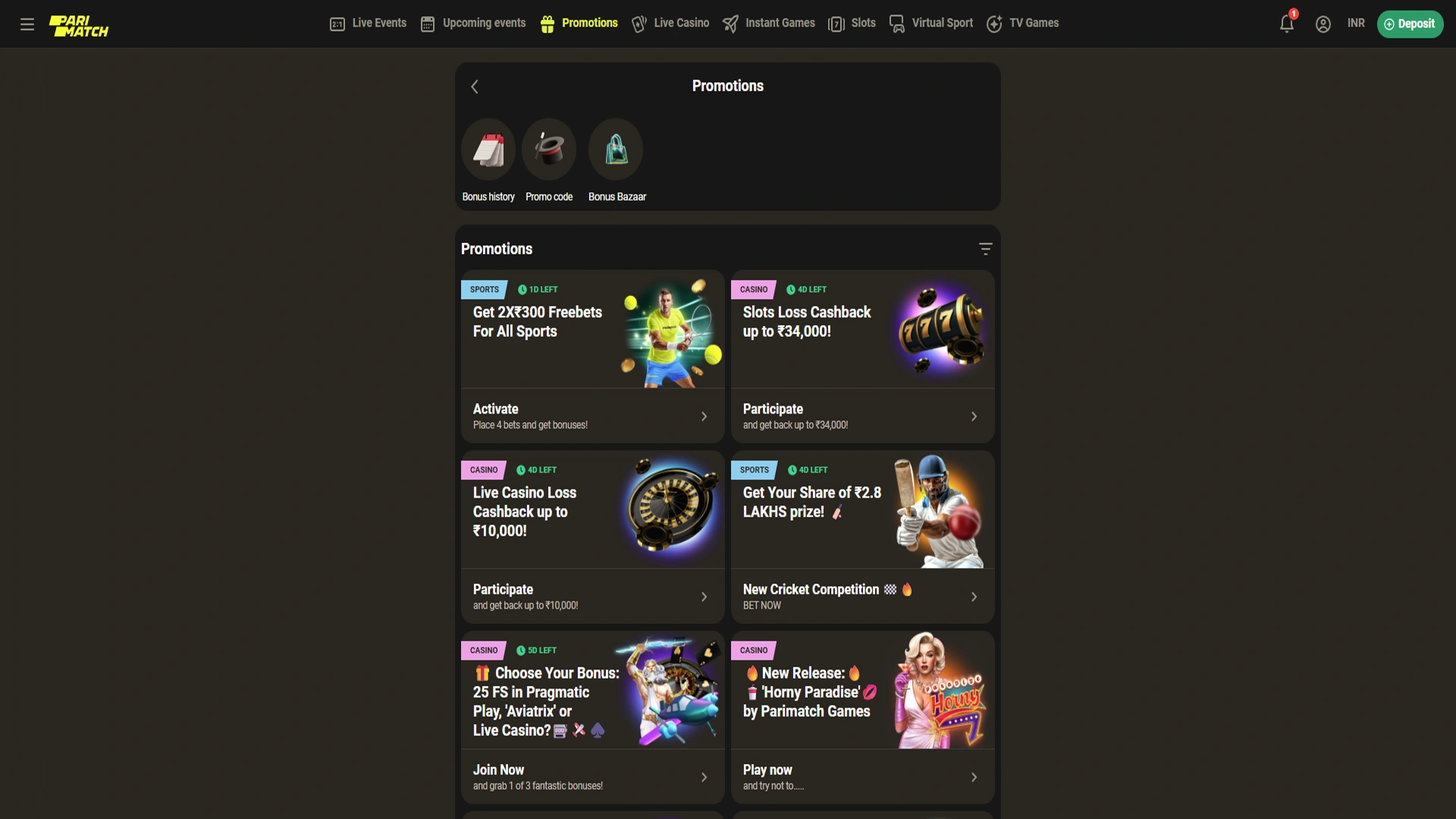
Step 5
Navigate to the sports section of the site, choose a sport discipline, an event and a match, and browse through the available markets and odds. Choose a type of bet, enter your bet amount, and confirm.
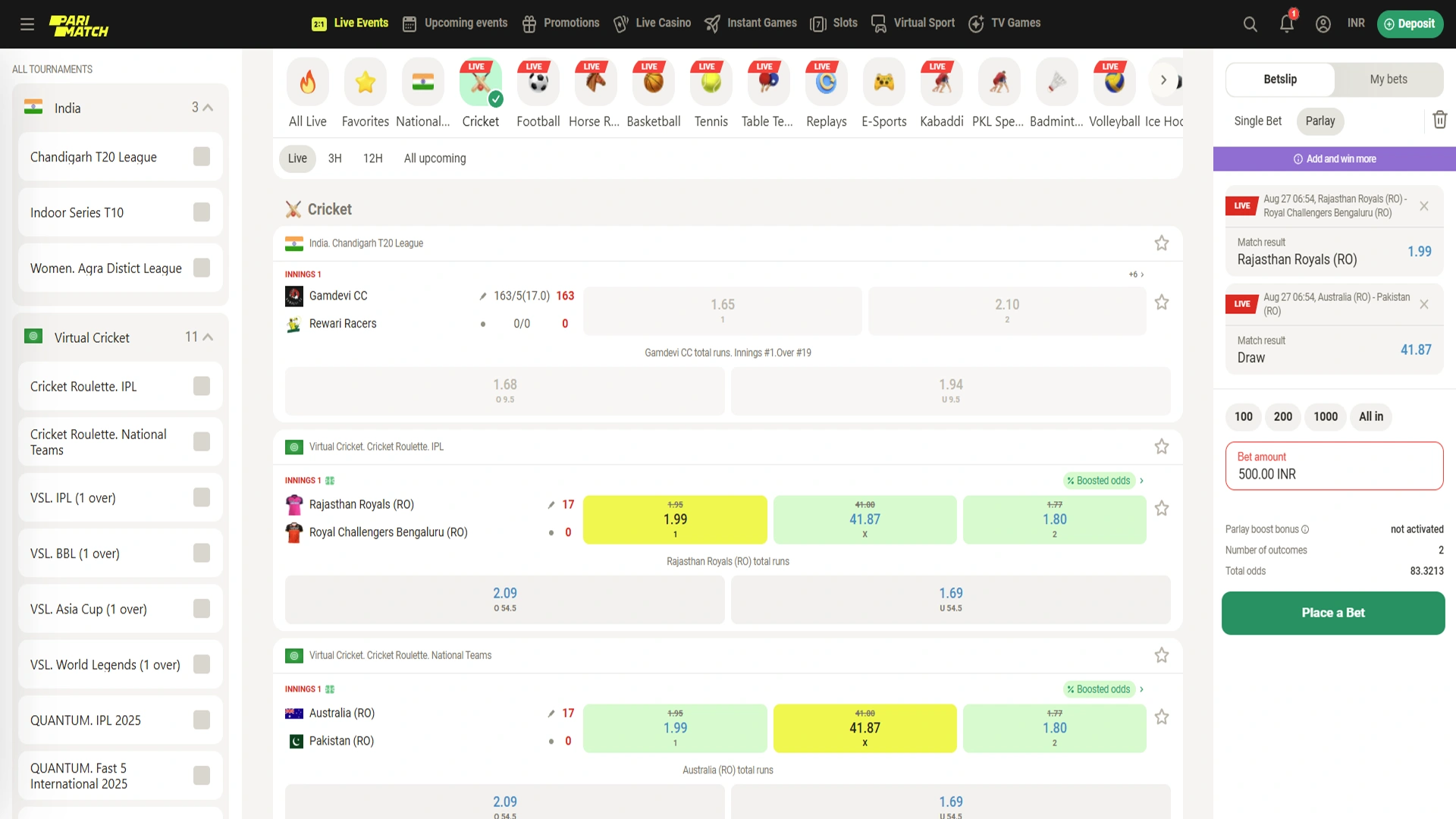
Step 6
Once you’ve accumulated winnings, you can withdraw funds from your account. Navigate to the withdrawal section, choose your preferred withdrawal method and follow the instructions. Wait for funds to be transferred to your chosen payment method.

Sports betting odds represent the likelihood of a particular outcome occurring in an event: the higher the odds, the less likely that the outcome occurs, and vice versa. Understanding these odds is crucial as they also determine the potential payout of a winning bet. Different formats are used worldwide to display odds, with the most common being fractional, decimal, and moneyline:
Each type offers a different way to calculate potential winnings, making it essential to understand the format when placing a bet. Commonly, the majority of betting sites use decimal odds, as they are the simplest.
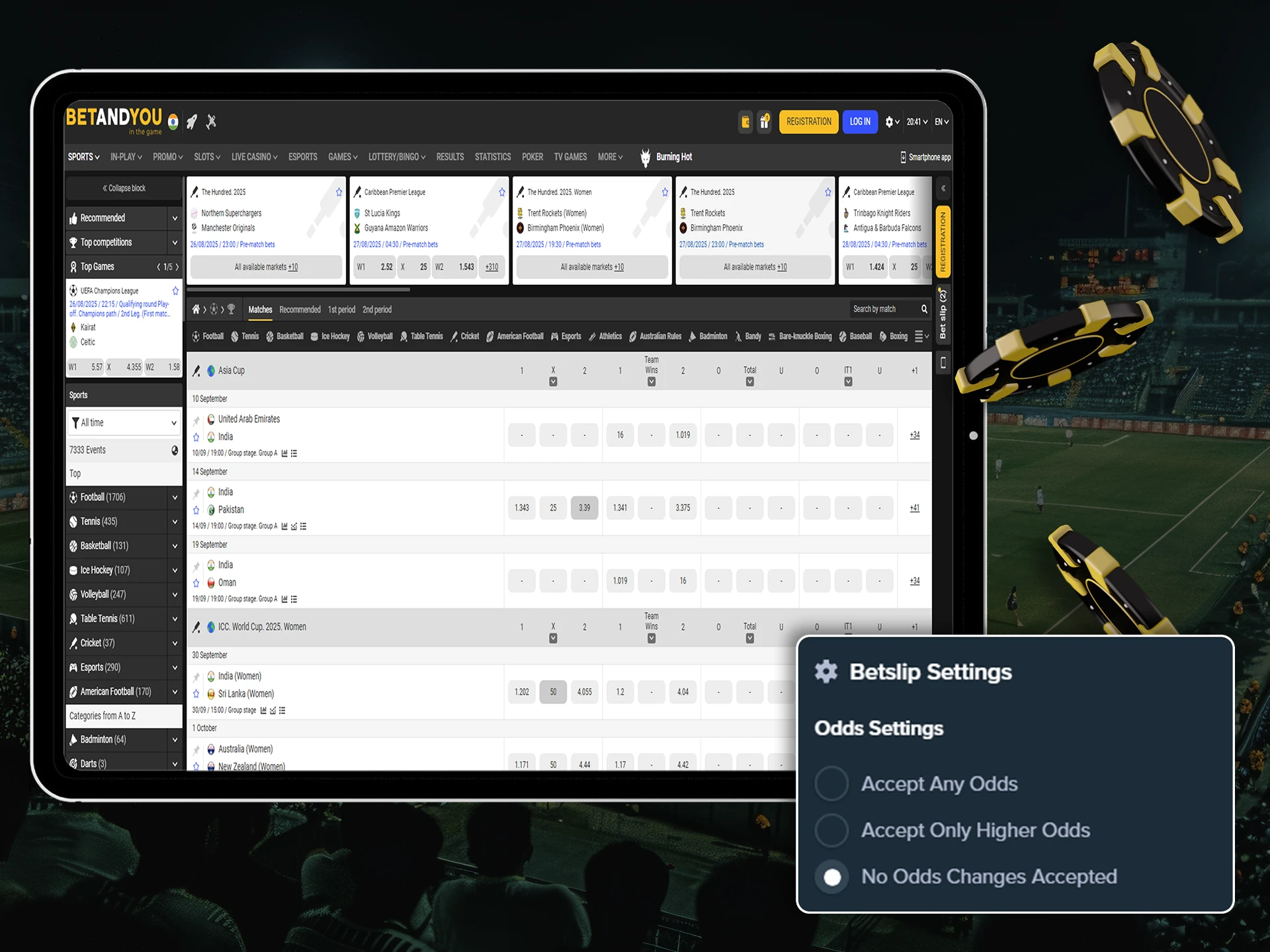
Machine learning is revolutionizing sports betting by enabling more accurate predictions and smarter and informed decisions. By processing vast amounts of data such as player statistics, historical game results and real-time factors such as weather conditions, machine learning algorithms identify trends and patterns that may be missed by traditional analysis. These patterns help bookmakers set more accurate odds and adjust them in real time as new data becomes available.
For bettors, machine learning tools can be used to simulate game outcomes, analyze betting strategies, and provide insights that give them a competitive advantage. Moreover, as machine learning continues to evolve, it keeps improving and increasing the accuracy of sports betting predictions, making the industry more data-driven and technologically advanced.
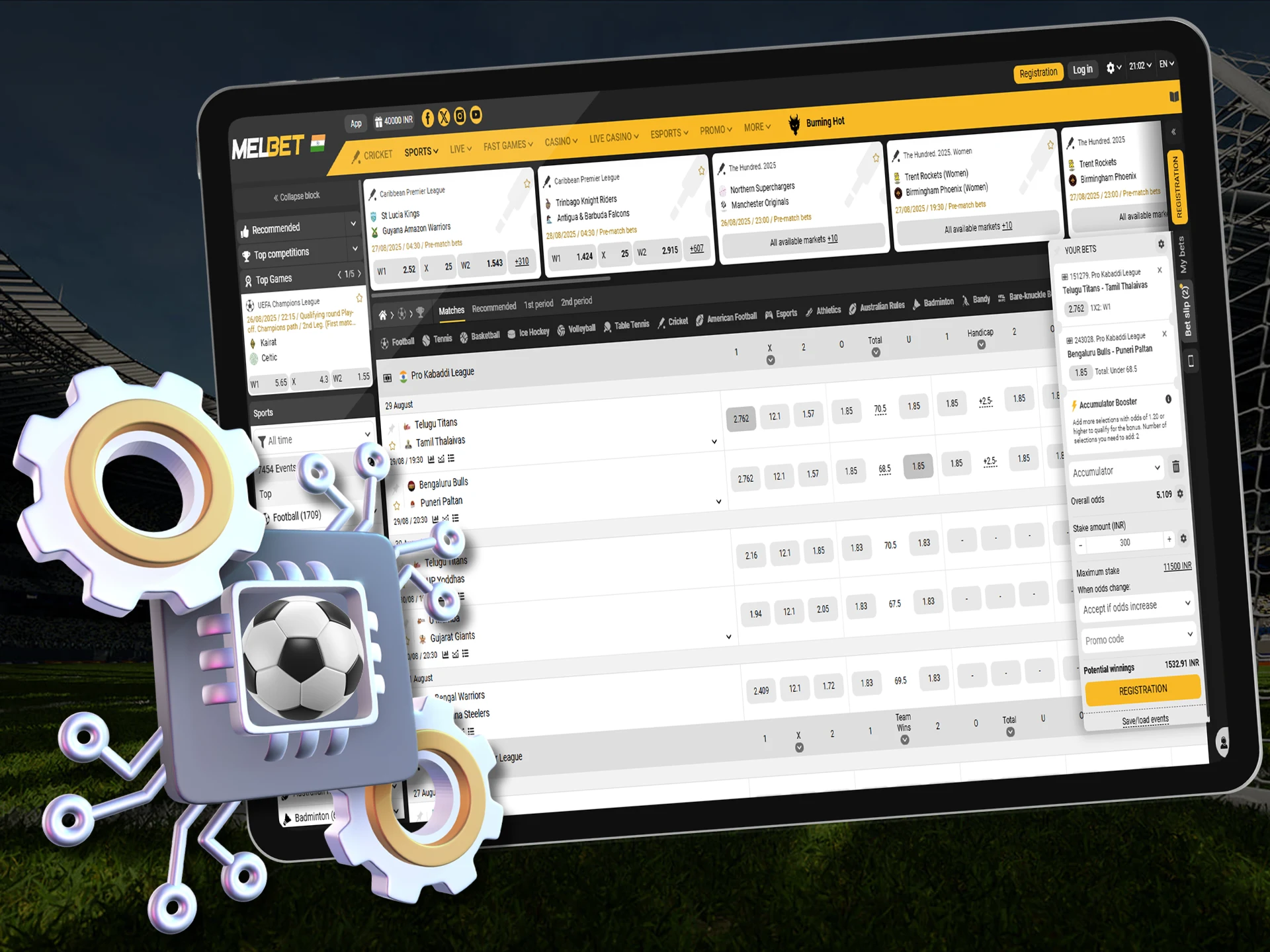
Betting scandals have greatly affected the integrity of sports over the years. One of the most infamous remains the 1919 Black Sox scandal, when eight Chicago White Sox players were bribed to deliberately lose the World Series, shaking the foundations of professional baseball.
In cricket, the Hansie Cronje match-fixing scandal in 2000, involving the South African national team captain, led to widespread investigations and strict anti-corruption measures enforced by the International Cricket Council (ICC). Similarly, the 2010 Pakistan cricket spot-fixing scandal, in which players agreed to bowl at specific times, further damaged the sport’s image.
Today’s scandals are not limited to traditional sports: esports also suffers from illegal betting and rigging, and players and teams are suspended. These incidents have led to calls for stricter rules and oversight to maintain the integrity of sport and betting, as corruption risks remain high in an increasingly globalized and digital betting environment.

The ATP have announced a partnership renewal of their agreement with Swiss watchmaker Rolex, who will continue on as the Official Timekeeper and Gold Partner of the ATP. The long-standing…
Top bookies use advanced security measures such as SSL encryption to protect user data and transactions. Additionally, they are licensed and regulated by authorities like the UK Gambling Commission, Malta Gaming Authority, or Curacao eGaming, ensuring compliance with fair play standards. Many platforms also undergo independent audits from organizations like eCOGRA to verify the integrity of their games and betting odds.
Betting sites offer a variety of deposit and withdrawal options, including:
Yes, players can register on multiple betting sites to take advantage of different bonuses, promotions, and betting odds. However, having multiple accounts on the same betting site is strictly prohibited and can lead to account suspension or bans. Always read the platform’s terms and conditions before signing up.
Reputable sportsbooks provide responsible gambling tools, including:
Yes. Most reputable betting platforms offer live or in-play betting, allowing you to place bets while the game is in progress with real-time odds updates.
It is generally safe to bet on well-regulated international sites that hold licenses from reputable authorities. Always choose platforms with strong security measures and positive user reviews.
Leave a Reply
Wafa Sodhani
One of the best reviews of the best sports betting sites in India, many thanks to the editors for the work done.
Berna
Best sports betting sites in India I like you!
Rajesh
Great breakdown of the best betting sites! Really helpful to see which platforms are reliable and safe to use
Arjun
I was looking for a trusted betting site with good odds, and this guide made my choice much easier. Thanks!